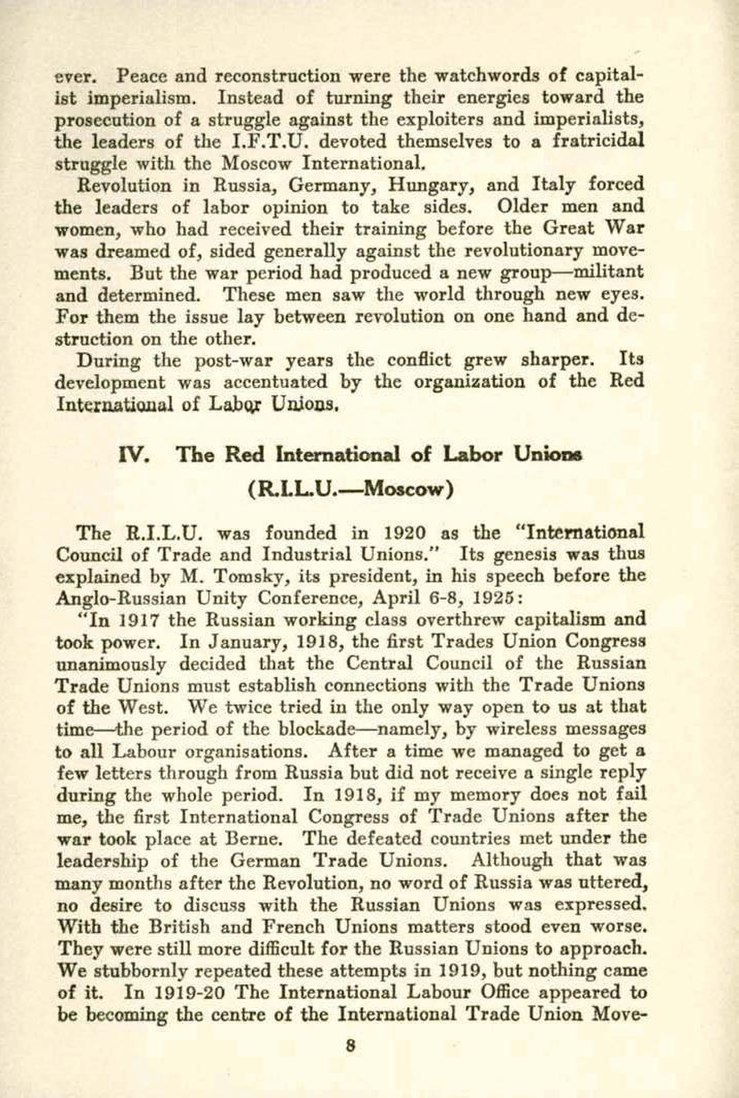ever. Peace and reconstruction were the watchwords of capitalist imperialism. Instead of turning their energies toward the prosecution of a struggle against the exploiters and imperialists, the leaders of the I.F.T.U. devoted themselves to a fratricidal struggle with the Moscow International.
Revolution in Russia, Germany, Hungary, and Italy forced the leaders of labor opinion to take sides. Older men and women, who had received their training before the Great War was dreamed of, sided generally against the revolutionary movements. But the war period had produced a new group—militant and determined. These men saw the world through new eyes. For them the issue lay between revolution on one hand and destruction on the other.
During the post-war years the conflict grew sharper. Its development was accentuated by the organization of the Red International of Labor Unions.
IV. The Red International of Labor Unions
(R.I.L.U.—Moscow)
The R.I.L.U. was founded in 1920 as the "International Council of Trade and Industrial Unions." Its genesis was thus explained by M. Tomsky, its president, in his speech before the Anglo-Russian Unity Conference, April 6–8, 1925:
"In 1917 the Russian working class overthrew capitalism and took power. In January, 1918, the first Trades Union Congress unanimously decided that the Central Council of the Russian Trade Unions must establish connections with the Trade Unions of the West. We twice tried in the only way open to us at that time—the period of the blockade—namely, by wireless messages to all Labour organisations. After a time we managed to get a few letters through from Russia but did not receive a single reply during the whole period. In 1918, if my memory does not fail me, the first International Congress of Trade Unions after the war took place at Berne. The defeated countries met under the leadership of the German Trade Unions. Although that was many months after the Revolution, no word of Russia was uttered, no desire to discuss with the Russian Unions was expressed. With the British and French Unions matters stood even worse. They were still more difficult for the Russian Unions to approach. We stubbornly repeated these attempts in 1919, but nothing came of it. In 1919–20 The International Labour Office appeared to be becoming the centre of the International Trade Union Move-
8
